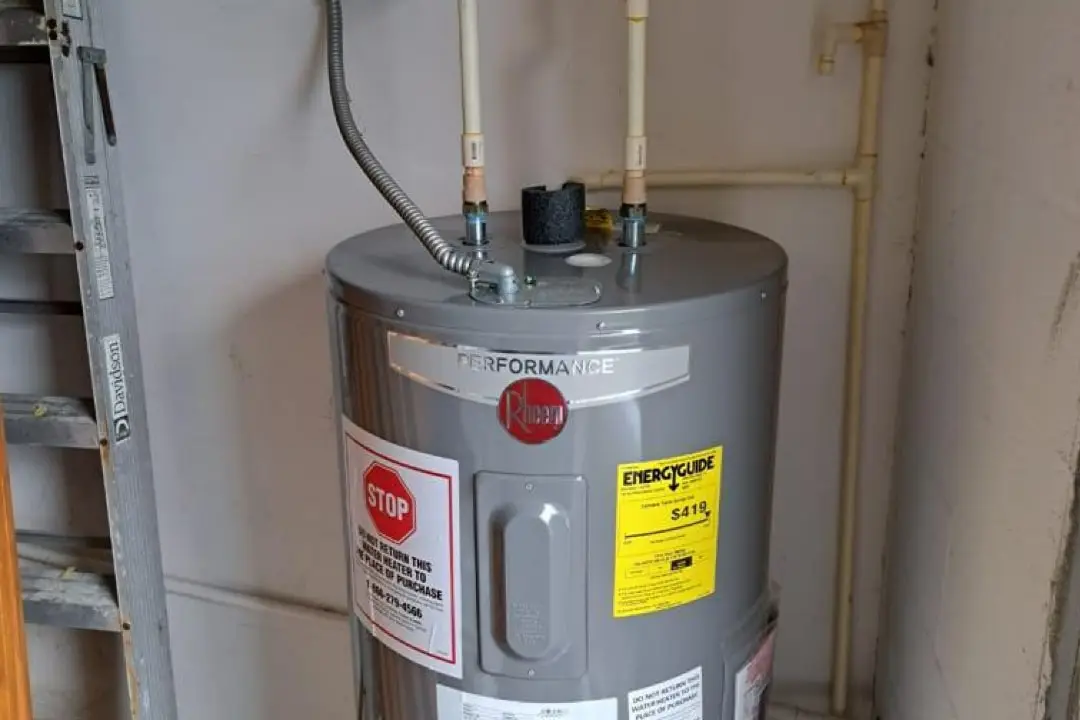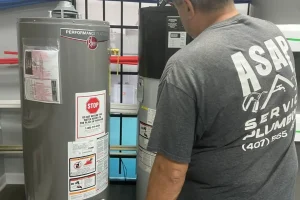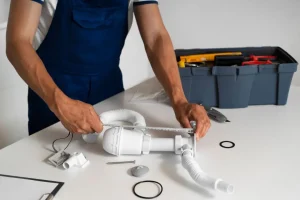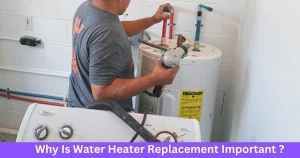When you can hardly fix your aged water heater, getting a new one is the most profitable move. If you have already considered replacing the water heater, this decision can greatly impact your home’s comfort and efficiency.
Selecting the appropriate type and size, along with factoring in installation expenses and energy efficiency, demands careful attention. By conscientiously evaluating these factors and seeking professional guidance as necessary, you can simplify the shift to a new water heater best suited to your requirements.
This article will explore the considerations when replacing your water heater in Orlando, and beyond.
6 Essential Factors to Asses Before Replacing Your Water Heater
Successful water heater replacement in Orlando, Kissimmee, and other cities depends not only on skilled professionals but also on your careful considerations. Here are the key things to remember before installing a new water heater to replace the old one.
1. Electric or Gas Water Heater?
Let’s start by checking some prime differences between electric and gas water heaters.
| Subject | Electric Water Heater | Gas Water Heater |
| Monthly Cost | Generally higher. | Generally lower. |
| Efficiency (EFs) | 0.7-0.95 (Higher) | 0.5-0.6 (Lower) |
| Installation | Easier | More complex |
| Energy Source | Electricity | Natural gas or propane |
| Lifespan | 10-15 years | 8-12 years |
When you’re considering replacing your water heater, a critical decision arises: should you go for an electric or gas model?
Electric water heaters are often favored for their lower initial cost and simpler installation process. However, they tend to have higher operating costs due to the typically higher price of electricity compared to gas.
On the other hand, replacing gas water heaters may have a higher maintenance cost and a more complex installation process.
People in Florida most often desire higher efficiency. Electric water heaters again satisfy them with higher efficiency than regular gas water heaters. Also, remember that some high-end gas water heater models are available nowadays which is slightly more efficient.
Ultimately, the decision between electric and gas water heaters is a personal one, dependent on your unique circumstances.
If you’re seeking higher efficiency and a straightforward installation, an electric water heater could be the right fit. Conversely, if you’re focused on long-term energy bill savings, a gas water heater might be more suitable.
2. Size Considerations
Before picking a water heater size, think about your hot water habits! How many people live in your house? Do you all shower back-to-back in the mornings?
A bigger water heater means more hot water on demand, perfect for larger families or frequent hot water users. However, it also takes up more space and costs more upfront. A smaller heater is space-saving and budget-friendly but might not keep up if multiple people need hot water at once.
A 40-gallon heater is a good starting point for a family of 2-3 people. If you have a bigger household (4+) or love long showers, consider a 50-gallon or even an 80-gallon heater.
A qualified plumber can assess your specific needs and recommend the perfect size for your home.
3. Energy Efficiency
When replacing a water heater, prioritizing energy efficiency can lead to notable long-term savings on your utility bills. Look for water heaters with high Energy Factor (EF) ratings, which indicate greater efficiency in converting energy into hot water.
Besides, features such as insulation levels, recovery rate, and standby heat loss should be considered to maximize efficiency. Choosing energy-efficient models not only reduces your carbon emission but also ensures consistent hot water availability while minimizing energy wastage.
Keep in mind that investing in a more efficient water heater upfront may involve higher initial costs but can result in substantial savings over the appliance’s lifespan. Check for ENERGY STAR certification and compare energy efficiency ratings to make an informed decision that aligns with your budget and environmental goals.
4. Installation Costs and Options
Electric water heater replacement is generally less expensive to install than gas water heaters because they require simpler connections. However, the final cost depends on a few things:
- Hiring a licensed plumber ensures the job is done safely and precisely.
- Your local permits for water heater replacements.
- Disposing of the old one.
- Increasing the size of your water heater, etc.
For gas water heaters, installation typically involves connecting to an existing gas line and ensuring proper ventilation for combustion. Electric water heater installations require access to electrical wiring and sufficient amperage to power the unit.
Both gas and electric water heaters can be installed as traditional tank-style units or tankless models, each with its installation requirements. Tankless water heater installations have become popular nowadays due to their space-saving design.
Homeowners should consult with a licensed plumber or electrician to assess their home’s infrastructure and determine the most suitable installation option for their needs.
5. Maintenance Requirements
Maintaining your water heater is essential to ensure its longevity and efficient operation. Regular maintenance tasks include:
- Flushing the tank to remove sediment buildup.
- Checking for leaks or corrosion.
- Inspecting the pressure relief valve for proper functioning.
It’s important to check the heating elements and thermostat settings periodically for electric water heaters. Otherwise, replacing the water heater thermostat will be compulsory, which is extremely troubling.
Gas water heaters may require additional maintenance, such as inspecting the burner and pilot light assembly. Homeowners should also consider scheduling annual professional inspections to identify any potential issues early on.
6. How Much Should You Spend?
When considering a water heater replacement, it’s crucial to consider the upfront costs against long-term savings.
On average, traditional tank-style water heaters range from $600 to $800, with installation costs averaging between $900 and $2,500.
Alternatively, tankless water heater replacement costs between $600 and $1,500, with installation expenses ranging from $1,000 to $3,500.
Gas water heaters, which rely on natural gas or propane, typically cost $500 to $2,500 to install. On the other hand, electric water heaters, which start at a similar installation cost of $500, can reach higher-end prices of up to $3,500.
While electric models may have higher initial costs, the water heater replacement cost can be compensated by potentially lower monthly utility bills compared to gas models.
Last Words
Replacing a water heater in Orlando, Kissimmee, or any Florida city involves careful consideration of various factors. From selecting the appropriate type and size to assessing installation costs and energy efficiency, each decision impacts the overall convenience and efficiency of your home.
Maintenance requirements and budget constraints further influence the decision-making process. By considering these concerns thoughtfully and striving for expert advice when needed, homeowners can ensure a smooth transition to a new water heater that meets their needs.
With careful planning and these helpful tips, your water heater replacement will be a smooth and successful journey!
FAQs
How can I tell if my water heater needs replacing?
Signs that your water heater may need replacing include frequent leaks, inconsistent water temperature, and unusual noises coming from the unit.
Are replacing tankless water heaters more energy-efficient?
Yes, tankless water heaters are generally 24% to 34% more energy-efficient than traditional tank-style heaters because they heat water on demand, eliminating standby heat loss.
Can I install a water heater myself?
While it’s possible to install a water heater yourself, it’s recommended to hire a licensed plumber or electrician for proper installation. This ensures safety, compliance with building codes, and optimal performance.




